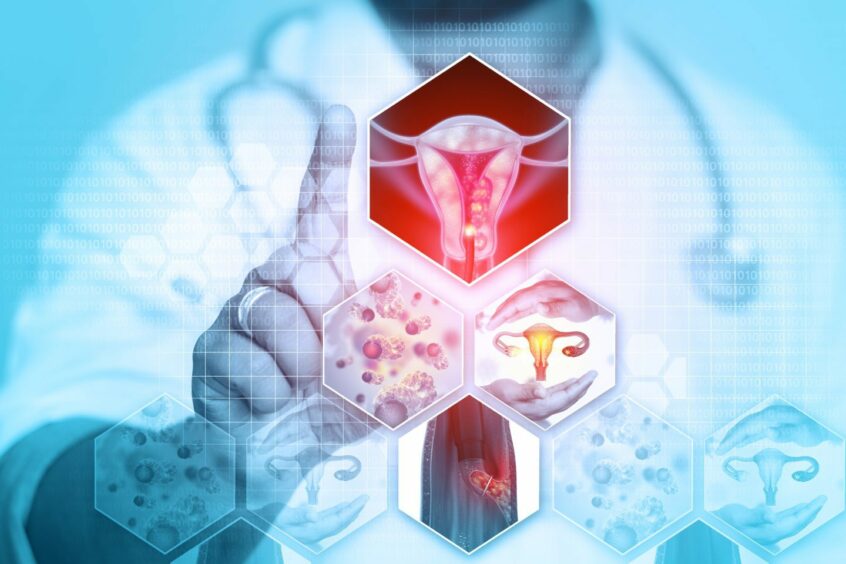Research by a team of NHS Tayside doctors and Dundee University scientists could lead to new treatments for ovarian cancer.
The team previously discovered that levels of a gene called FGF1 plays a role in resistance to the chemotherapy drug carboplatin, used to treat ovarian cancers.
But their latest research reveals the gene can be manipulated to reverse drug resistance.
Dr Michelle Ferguson, consultant medical oncologist at NHS Tayside, says: “Understanding the biology of how drug resistance develops in cancers could lead to new treatments for patients and make those we already have more effective.
“Many of my patients donated samples to progress this research and I’d like to thank them for their support.”
Ovarian cancer is the sixth most common cancer in Tayside and Fife.
Here’s a reminder of the signs and symptoms of ovarian cancer you should never ignore?
What is ovarian cancer?
Ovarian cancer, or cancer of the ovaries, is one of the most common types of cancer in women.
It is caused when abnormal cells in the ovary begin to grow and divide in an uncontrolled way, and eventually form a growth (tumour).
If not caught early, cancer cells gradually grow into the surrounding tissues and may spread to other areas of the body.
What causes it?
NHS Inform says the exact cause of ovarian cancer is unknown.

Some things may increase a woman’s risk of getting it, such as:
- being over the age of 50
- a family history of ovarian or breast cancer
- hormone replacement therapy (HRT) – although any increase in cancer risk is likely to be very small
- endometriosis – a condition where tissue that behaves like the lining of the womb is found outside the womb
- being overweight
- smoking
- lack of exercise
- exposure to asbestos
How common is it?
Anyone with ovaries can get ovarian cancer, but it mostly affects those over 50.
Around 7,400 women are diagnosed with ovarian cancer in the UK each year. This makes ovarian cancer the 6th most common cancer in women.
Target Ovarian Cancer says 600 women a year in Scotland are diagnosed, with only 46% at an early stage so it’s vital you know the symptoms, whatever your age.
What are the symptoms?
The symptoms of ovarian cancer can be very vague, particularly when the disease is in its early stages.
Symptoms include:
- Persistent bloating – not bloating that comes and goes
- Feeling full quickly and/or loss of appetite
- Pelvic or abdominal pain (that’s your tummy and below)
- Urinary symptoms (needing to wee more urgently or more often than usual)
⬇️ SHARE TO SAVE LIVES ⬇️
Can you name the symptoms of #OvarianCancer?
◼️ Persistent bloated tummy
◼️ Always feeling full
◼️ Tummy pain
◼️ Needing to wee moreLearn more about the symptoms of ovarian cancer: https://t.co/PzmQ1tLgoZ pic.twitter.com/PX0ZRANNv9
— Target Ovarian Cancer (@TargetOvarian) May 1, 2022
Occasionally there can be other symptoms:
- Changes in bowel habit (eg diarrhoea or constipation)
- Extreme fatigue (feeling very tired)
- Unexplained weight loss
- Any bleeding after the menopause should always be investigated by a GP
Symptoms will be:
Frequent – they usually happen more than 12 times a month
Persistent – they don’t go away.
New – they’re not normal for you.
When should I go to my doctor?
If you regularly experience any one or more of these symptoms, which are not normal for you, it is important that you see your GP.
It is unlikely that your symptoms are caused by a serious problem, but it is important to be checked out.
-
Target Ovarian Cancer has a series of help guides here.












